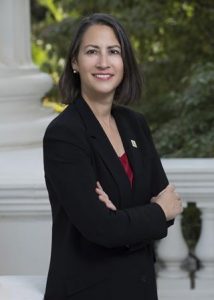[row]
[col span=”1/1″]
This is the first of 3 posts covering some of the key policy bills that CCA is working on this year.
The 2021 legislative session is officially underway, and hopes are higher this year for policies that meaningfully reduce emissions from transportation.
Transportation of people and goods causes 80% of California’s air pollution and over half of its climate-altering greenhouse gas emissions. To clean up our transportation system, we need to rapidly transition to advanced engines and fuels. An even bigger challenge is to reduce our dependence on motorized vehicles by providing Californians access to safe, convenient and affordable alternatives like public transit, walking and biking.
The Bills
A law, SB 375, tried to start this process 13 years ago by setting specific climate targets cities and regions would have to meet. Currently we are not on track to meet these targets. SB 375 has been proven to not be adequate, with its lack of accountability and enforcement. Two bills, AB 1147 and SB 261, seek to update and improve existing law.

SB 261, introduced by Senator Ben Allen, would add specific vehicle miles traveled (VMT) reduction targets and GHG reduction targets for the automobile and light truck sector for 2035, 2045 and 2050, and make the regions and cities more accountable for hitting those targets.
AB 1147, authored by Assemblymember Laura Friedman, is still in placeholder form, but will also address some of the problems with SB 375 and advance modes of active transportation. We hope the bill will require specific GHG reductions targets and sustainable modes of transportation in regional transportation plans.
Assemblymember Friedman has also introduced AB 1401, which would prohibit a local government from imposing a minimum parking requirement, or enforcing a minimum parking requirement, on residential, commercial, or other development if the development is located on a parcel that is within one-half mile walking distance of public transit or located within a low-vehicle miles traveled area. This is important to prioritize land use patterns that foster sustainable modes of transportation rather than favoring vehicles.
All three of these bills would encourage more planning and development that facilitates transit, walking and biking, and provide alternatives to sprawl development that serves single occupancy vehicles. While not going as far as we would like, they would make progress in reducing vehicle miles traveled and emissions from the most polluting sector.
The Committees

One reason why sustainability should fare better in this new legislative session is the new membership of the transportation committees in both the Senate and Assembly.
Assemblymember Friedman brings a refreshing change as chair of the Assembly Transportation panel. Ms. Friedman has been a climate champion in the past and has expressed the urgency to reduce emissions from the transportation sector. Since she is joined by other members likely to shape sustainable transportation policies, we hope to see more enlightened policy passing through that committee than in the past.
The Senate Transportation panel also has a promising new chair. Senator Lena Gonzalez understands the dangers posed to public health by the concentration of goods movement in her Long Beach-based district and will bring that perspective to the helm of the committee. These impressive new chairs and their colleagues will have their work cut out for them in tackling the state’s transportation problems.
[/col]
[/row]








